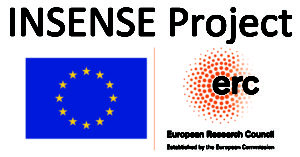New Paper in Psychophysiology
First collaboration with Anna Shubö’s group in Marburg, hopefully more to follow!
Abbasi, H., Kadel, A., Hickey, C. & Schubö, A. (in press). Combined influences of strategy and selection history on attentional control. Psychophysiology.
Combined Influences of Strategy and Selection History on Attentional Control
Visual attention is guided by top-down mechanisms and pre-stimulus task preparation, but also by selection history (i.e., the bias to prioritize previously attended items). Here we examine how these influences combine. Two groups of participants completed two intermingled tasks. One task involved categorization of a unique target; one group categorized the target based on color, and the other based on shape. The other task involved searching for a target defined by unique shape while ignoring a distractor defined by unique color. Our expectation was that the search task would be difficult for the color categorization group because their categorization task required attentional resolution of color, but the search task required that they ignore color. In some experimental blocks, trials from the two tasks appeared predictably, giving the color categorization group an opportunity to strategically prepare by switching between color-prioritizing and shape-prioritizing attentional templates. We looked to pre-stimulus oscillatory activity as a direct index of this preparation, and to reaction times and post-stimulus ERPs for markers of resultant change in attentional deployment. Results showed that preparation in the color-categorization group sharpened attentional templates, such that these participants became less sensitive to the color distractor in the search task. But preparation was not sufficient to entirely negate the influence of selection history, and participants in the color-categorization group continued to show a propensity to attend to the color distractor. These results indicate that preparatory effort can be scaled to the anticipated attentional requirements, but attention is nevertheless considerably biased by selection history.
